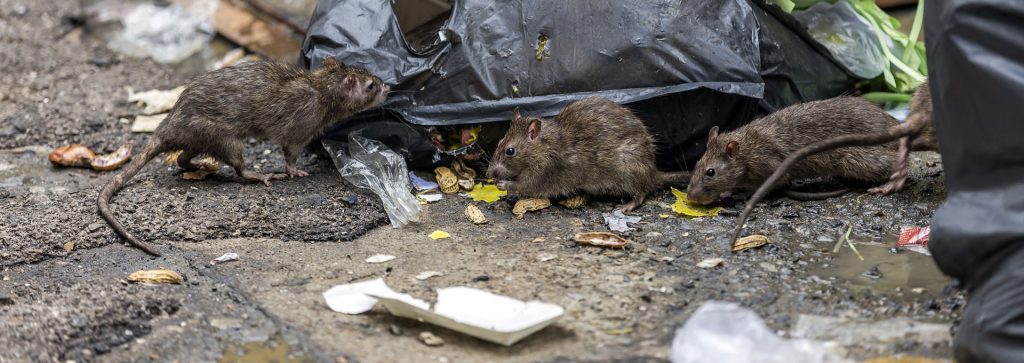Why are rats dangerous?
Rats are dangerous because they carry fleas, ticks and mites that may transmit diseases such as typhus, Lyme disease and plague. They also feed off pet food which can lead to obesity in your beloved pets. This brief will tell you everything you need to know about this pesky problem in order to protect yourself and your loved ones from these unwanted pests! Some of the diseases that can be spread from rats to people are bubonic plague, pneumonic plague, murine typhus, salmonella spirosis hantavirus tularemia. At Sykes Pest Control, we are experts when it comes to removing rats from your property.
Rats carry diseases that can be transmitted to humans, such as typhus, Lyme disease and plague
Rodents can carry diseases that can be transmitted to humans, such as typhus, Lyme disease and plague. Rodents are well known for carrying fleas, ticks, and mites that may transmit other diseases including murine typhus, salmonella, leptospirosis, Hantavirus infections and tularemia. Rats are also responsible for spreading salmonella to pet food which can lead to obesity in pet animals.
There is a risk of pets getting sick from rat infestations because rats feed off pet food
Rats are known for carrying fleas, ticks and mites that may transmit other diseases such as murine typhus, salmonella spirosis hantavirus infections and tularemia. Rats also feed off pet food which can lead to your pets getting sick. Rats are known for infesting homes with pet food leading to an infestation of flies, maggots, cockroaches and other rodents.
Rats can cause damage to property by chewing through electrical cables
Rats can chew through electrical cables and cause a fire which will lead to more damage. When RATS, MICE AND OTHER PESTS chew on Electrical wires they become exposed to potentially damaging or lethal shocks. This is because the power leads (and some other types of cables) provide an electric current as soon as they are connected.
Some ways to get rid of rats include using traps or poison, but those methods might not always work well for every situation
There are many ways to get rid of rats. You can use traps or poison, but make sure that these methods do not harm other animals or humans, and you will need to make sure that they are placed in areas where people and pets cannot reach them. Another way to get rid of rats is by using rodenticides, which must be put into bait stations that protect pets and any other animals that may be around. The rodenticide must then be applied within the general area where you’re seeing evidence of rat activity. Another option is to take your pet out for walks more often so it becomes less likely for them to eat food left outside with rat droppings on it!
What you need to do if you find a rat in your home
If you see a rat in your home, then you should call a professional pest controller. Rats are very dangerous and can easily infect you with diseases. You should never try to catch or kill them yourself because it can be quite dangerous.
One way you can prevent a rat infestation is by removing their food sources. This means that you should never leave out pet food, any sort of food scraps should be cleaned up after meals, and all the possible hiding spots for rats need to be filled in with cement because this will make sure they cannot come back. You should then buy some good rodent repellent that will not harm your pets but is strong enough to drive the rodents away!
Conclusion
Rats carry diseases that can be transmitted to humans, such as typhus, Lyme disease and plague. Rodents are well known for carrying fleas, ticks, and mites that may transmit other diseases including murine typhus, salmonella spirosis hantavirus infections and tularemia. Rats are also responsible for spreading salmonella to pet food which can lead to obesity in pet animals. There is a risk of pets getting sick from rat infestations because rats feed off pet food in order to protect yourself against these unwanted pests you should always make sure your trash cans have tight lids on them so the rodents cannot get into them or use poison bait stations if you want an easy solution! Contact us today for more information.

